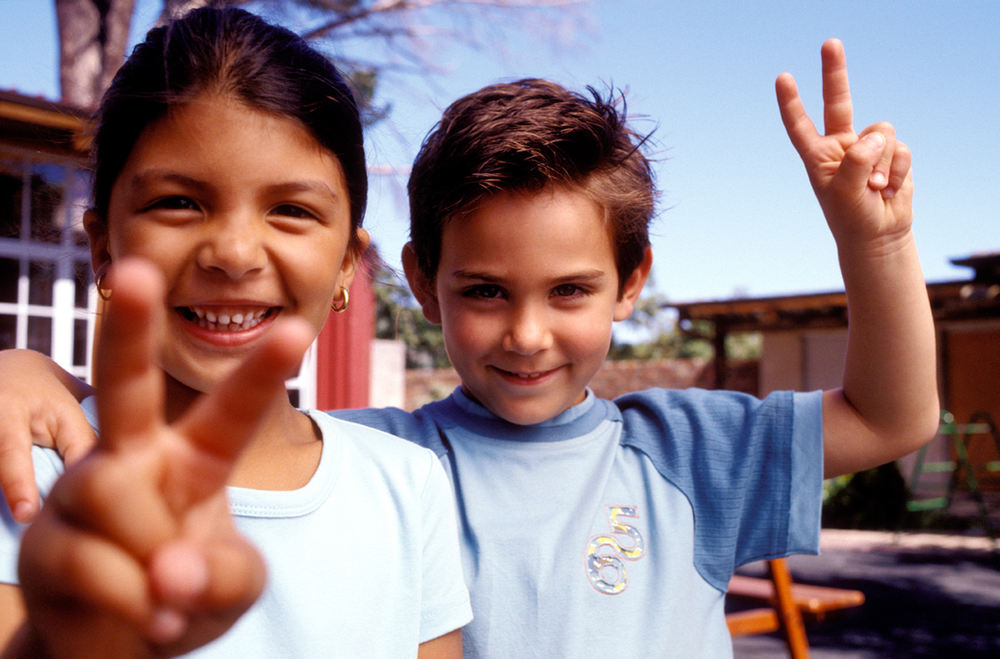
Montessori classrooms are notable for their freedoms. Children seem to be following their own paths, unaffected by a whole-group-plan or the direct instruction of a teacher. While traditional classrooms track entire groups of children at a time, Montessori classrooms have as many lesson plans as there are children in the environment, and each one is incomplete until it's initiated by the child.
This degree of freedom can come as a surprise to some observers, as children who we might generally think to rely on adults more heavily instead seem totally self-directed, yet socially aware and responsible beyond their years. Do these classrooms become so open and free because of the children are intrinsically self-motivated and responsible? Or do the children develop self-motivation and responsibility because the classrooms are so open and free? In truth, it's both. These environments are designed to offer children freedom within limits, to expand the amount of freedom that children enjoy as children are able to manage their own needs and communicate with others more adeptly. We believe that there are some freedoms that are non-negotiatiable: the freedom of movement, the freedom of exploration, the freedom to interact with others and the freedom from the interference of others.
But we also believe that, when a child's development is unhindered and these essential freedoms are protected, the child is able to develop the ability to make thoughtful decisions and to demonstrate responsibility for the decisions they may. In other words, the open-ended freedom of choice that is so sacred in Montessori classrooms depends on the protection of other freedoms first.
These first four freedoms, and the resulting fifth, are protected qualities of the prepared environment. The prepared environment is designed to remove the child's need for an adult as much as possible. In other words, we design environments that protect particular freedoms because we believe that the expression of those freedoms will result in an environment that the children can manage on their own.
So, yes, Montessori classrooms do have a lot more freedom than other settings may. But they're not free-for-alls. Children have both the freedom to learn and grow as we believe they are best supported by and the responsibility that comes with that freedom. We design these environments to support the children's self-construction through their experiences here. We want to support children in developing into the adults we believe they can become, without losing the essential and irreplaceable nature of childhood. We believe that children are intrinsically good, intrinsically peaceful and intrinsically motivated to learn and to contribute to their communities in meaningful ways. We believe, through the protection of these freedoms, that we can preserve those qualities as the children grow. And we believe that, with their inherent nature protected, the children will, in turn, create a society within which our own freedoms end when they begin to impose on the freedom of others, within which each of us values those peaceful, industrious and good communities and is willing to act to protect them.
#Freedom #Discipline #ForParents #Theory #General
